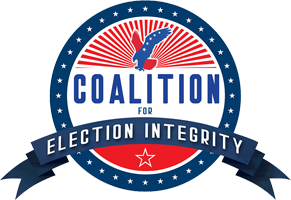
Senior Editor AND Magazine, Retired CIA officer, Author & National Security Commentator
For many years there has been a bipartisan consensus that the implementation of “no-excuse” mail-in voting on a large scale would open the door to massive electoral fraud. In 2005 a bipartisan commission co-chaired by Jimmy Carter found that what it called absentee ballots were a potential disaster. “Absentee ballots remain the largest source of potential voter fraud,” was the conclusion.
In 2012, a Miami–Dade County Grand Jury issued a public report on the subject, “Once that ballot is out of the hands of the elector, we have no idea what happens to it. The possibilities are numerous and scary.”
In California in 2016, after absentee ballot laws were enacted a San Pedro couple found more than 80 unused ballots on top of their apartment-building mailbox. All had different names but were addressed to an 89-year-old neighbor who lived alone in their building. Apparently, the ballots were to be picked up by someone, but the couple had intercepted them first. In the same election, a Gardena, California woman told the local paper that her husband, an illegal alien, had received a mail-in ballot even though he had not registered to vote.
In 2012 a University of South Alabama study stated the obvious, that it was “fundamentally more difficult to ensure the validity” of vote by mail ballots. The study further noted that voting by mail was “susceptible to widespread fraud”. It is also noted that measures like signature verification were imprecise and likely to fail. The study noted that “The Florida Department of Law Enforcement had even referred to absentee ballots as “the tool of choice for those inclined to commit voter fraud.”
http://iiisci.org/Journal/CV$/sci/pdfs/HPA468KX.pdf
In short, no one interested in the integrity of the electoral process thought the idea of mailing out a huge number of ballots into the ether and hoping that what came back could be relied upon to be free of contamination and manipulation was a good idea. Everybody understood the implications. The mass use of mail-in ballots would mean the end of free and fair elections.
Nevertheless, last year the Republican-controlled legislature in Pennsylvania adopted Act 77 and moved the state away from a system grounded on the principle of in-person voting to one that permitted “no-excuse” mail-in voting. Pandora’s Box had been opened. The predictable result followed. An election was conducted, whose result cannot possibly be trusted.
In the wake of this debacle, a great many Pennsylvanians are demanding the immediate repeal of Act 77 and a return to a system under which voters, other than those who qualify for narrowly defined absentee ballots, will appear in person, use hard copy ballots, and show proof of their identity. Some members of the legislature appear to want to move quickly on this issue. Far too many, however, are opting for business as usual.
These legislators assure us the problem will be studied. Then, at some point, probably much later, a report will be issued. Maybe some minor changes will be made. Maybe not.
We have seen this movie before. This is theater. We are expected to accept bland assurances, lose interest and walk away.
Not this time. If the Pennsylvania legislature wants to study electoral reform that is fine. First, they need to repeal Act 77, return us to in-person voting, require as Georgia has that voters show ID, and establish a secure foundation on which we can move forward.
Then, the legislature can take all the time it wants to ponder next steps, but not before. Passing Act 77 was a mistake. Not immediately repealing it will be an even bigger one.
Reprinted from https://andmagazine.com/talk/2021/02/02/passing-act-77-was-a-mistake-not-repealing-it-will-be-an-even-bigger-one/.
******************
Sam Faddis is a retired CIA operations officer, published author, and national security commentator. In addition to writing, speaking and teaching, he consults for the U.S. military, U.S. government and private industry. Sam graduated from The Johns Hopkins University and the University of Maryland Law School. For more info, visit http://samfaddis.org/

It seems that Democrats are unable to win an election without the use of Fraudulent votes. This practice must come to and end.
Biden got into the White House by FRAUD, he is not legally our president, and should be removed. I for one do not and will not accept him as my president.As far as I am concerned, Donald J. Trump is still president of the United States. Biden is a child sniffing,womanizer and a china loving communist bastard who is destroying our country. Biden is a disgrace and the entire world knows it. We need Voter ID in order to ensure a free and honest election. Voter ID has nothing to do with race, and should be mandatory in all 50 states and territories.Maybe,voter ID should be included in our Constitution. I fought for my country, and I will continue fighting for my country, in anyway that I can. I believe in saluting our flag and standing for our national anthem. I believe that “In God we trust” should be our nations motto forever. Freedom is not cheap,it is a continuous fight to keep it and fight we must. Free and honest elections and the freedom to speak and the rule of law must be enforced.